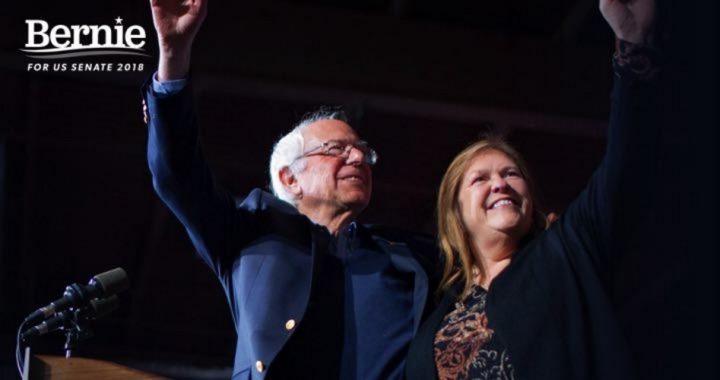
“Today’s decision by the DNC is an important step forward in making the Democratic Party more open, democratic and responsive to the input of ordinary Americans,” Senator Bernie Sander (I-Vt.) said in response to the news that the Democratic National Committee (DNC) had voted over the weekend to limit the role played by so-called superdelegates in selecting the presidential and vice-presidential nominees of the Democratic Party.
Superdelegates consist of party officials, former members of Congress, and former presidents who served in office under the Democratic Party label. In 2016, and in other recent presidential election years, they have been given automatic delegate slots at the quadrennial Democratic National Convention. They have not been required to support any particular candidate for president, but instead can hold out their final choice until the roll call, with the thinking that they can protect the institutional interest of the Democratic Party better that way.
Sanders gushed with praise for the DNC chairman, Tom Perez. “This has been a long and arduous process, and I want to thank Tom Perez and all of those who made it happen,” he asserted.
Perez spoke after the change, which was adopted on a voice vote. “Today is a historic day for our party. We passed major reforms that will not only put our next presidential nominee in the strongest position possible, but will help us elect Democrats up and down the ballot, across the country.”
Under the “reform” adopted on Saturday during the party’s summer meeting in Chicago, superdelegates will still be allowed. However, they will not be allowed to vote during the first ballot of the nominating process. Were there to be a second ballot, however, they would be allowed to vote then. Of course, neither major political party has had a second ballot in decades. The party has been locked in negotiations over the issue for almost two years.
In 1924, when the Democratic Party used a rule that a candidate must get two-thirds of the votes of the delegates to win the nomination, it took over 100 ballots and 16 convention days for the party to choose a nominee — John Davis — who lost by a landslide in the general election to Republican President Calvin Coolidge. The Democrats dropped the two-thirds rule after Franklin Roosevelt became president.
As an indication of how much such party rules have changed for the two major parties, many supporters of Donald Trump in 2016 were incensed when it appeared that Trump would fall short of a majority of the delegates — despite the fact that he was in first place — and might then lose to another Republican on a second ballot.
Out of concern that a candidate who was more openly left-wing might win the caucuses and primaries, but be less electable in the general election, the Democrats had adopted the “superdelegate” system. This has led to some ridicule because Democrats often complain about the “undemocratic” nature of the Electoral College, yet they awarded automatic convention delegate slots to party insiders.
The use of “superdelegates” became an issue during the contentious battle for the Democratic nomination in 2016 between former Secretary of State Hillary Clinton and Senator Sanders. Along with revelations that the official Democratic Party apparatus was slanted in favor of Clinton, the fact that Clinton won almost all of the superdelegates’ support caused deep divisions within the party.
Yet, Sanders endorsed Clinton in the general election over Republican nominee Donald Trump.
It is somewhat ironic that Sanders has complained about the process that Democrats use to select their party’s ticket, considering that he is not even a member of the Democratic Party; he was elected to the U.S. Senate from Vermont as an Independent. One would think that if one wanted to be president of the club, one would first join the club. Instead, he proudly proclaims himself to be a democratic socialist, and still refuses to officially join the Democratic Party, although he does caucus with the Democrats in the Senate and is a reliable vote for most Democratic Party goals.
Despite his not even being a member of the Democratic Party, Sanders is still considered a potential candidate for president in 2020, on their ticket. His identification as a “socialist” does not seem to bother all that many Democrats, and in fact, when asked by a reporter during the campaign to explain the difference between a Democrat and a socialist, Hillary Clinton appeared stumped.
Which is OK, because I am, too.
Image: Screenshot of Berniesanders.com



